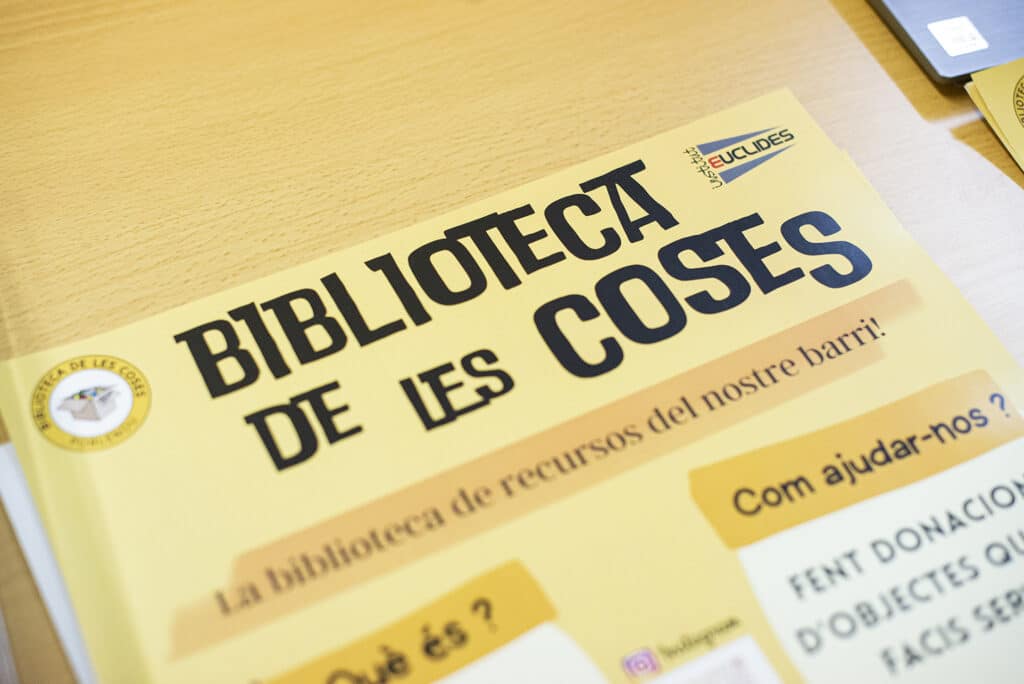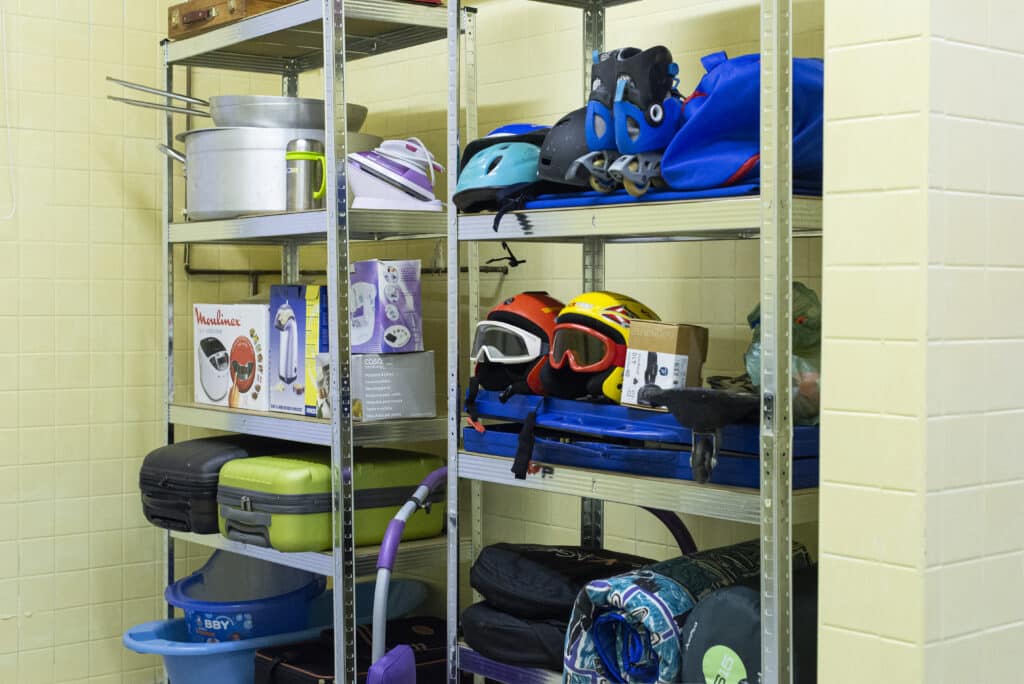The Euclides Secondary School in Pineda de Mar and the Domènech i Montaner Secondary School in Canet de Mar have opened object lending services in their centres
They are the first secondary schools in Catalonia with Libraries of Things, and are managed by the students themselves
The initiative is part of the Maresme Waste Prevention Plan, which aims to reduce waste generation in the region by 26.4%
The 3rd and 4th year ESO students from the Estímuls group at Euclides Secondary School in Pineda de Mar and the Passarel-les group at Domènech i Montaner Secondary School in Canet de Mar have worked hard to create a space in their schools for lending objects for occasional use, the so-called “Libraries of Things“.
These are the first lending spaces for objects in operation in schools in Catalonia, promoted by Maresme Circular, the brand of the Maresme Waste Consortium. The initiative is inspired by the experience of the Sant Martí Library of Things, the first in the country, and seeks to promote waste prevention, the reduction of greenhouse gas emissions and the efficient use of resources. At the Sant Martí Library of Things, for example, with more than 400 loans last year, 1,500 kilos of waste and more than 6,000 kilos of CO2 equivalent have been avoided.
Teachers and pupils have spent many sessions deciding how they wanted their Library of Things to work, collecting and preparing the objects, setting up the space and communicating the project to the rest of the educational community.
The project has helped them to reflect on consumerism and its environmental impacts, while offering them a way to get involved in the transformation towards a more sustainable model of consumption.

How they work
In both cases, a space has been set up within the school itself to store the objects in the catalogue. Most of them are donations made by people from the educational community itself, although they have also received contributions of objects from local businesses and the respective town councils. Thus, for example, an inflatable mattress, a tent, a carrier for cats or small dogs, board games or a pair of crochet needles have been obtained. But some purchases have also been made, such as a sewing machine and a car hoover.
The catalogue is available online. Once the reservation has been formalised, it can be collected during opening hours or by appointment. The students themselves are responsible for managing loans, keeping the digital catalogue up to date, etc.
An enriching experience
“Thanks to the project, we work as a cooperative team and, most importantly, it allows us to contribute to caring for the environment“, say the pupils from the Canet de Mar school, who emphasise: “The most interesting thing about our library is to see how we give life to a condemned object and make it useful for other people”.
The pupils at the Pineda de Mar school also value very positively the fact that with the library they can “give a second use to things we no longer use“. They also stress that “it’s not all about buying; it’s also about sharing” and add: “We’re really looking forward to seeing this project take off”.
For the teaching staff, the experience has also been very enriching. The team that has accompanied the process in Canet de Mar believes that the project has been an opportunity to “work with the pupils from different areas in a very experiential way, favouring a service to the community” in an initiative that has also allowed them to “deepen their awareness of the importance of caring for the environment”.
The teachers at the Euclides Secondary School in Pineda de Mar appreciate the fact that with the creation of the Library of Things, the students have been able to “see the result of a project that they are responsible for and that is totally experiential”, and also that the project “promotes the entrepreneurial skills of the students and creates links between the school, the neighbourhood and the municipality“.
In the framework of a process of learning and service
To accompany the process of creating these Libraries of Things, the schools have had the technical support of Nusos and Rezero, the two organisations behind the Sant Martí Library of Things.
The work began last year, linked to the Community Learning and Service on circular economy and waste reduction promoted by Maresme Circular, the brand of the Maresme Waste Consortium, within the Waste Prevention Plan of the region, which aims to reduce waste generation by 26.4% by 2027, compared to 2010. The library creation service associated with this ApS has received funding from the Catalan Waste Agency.




